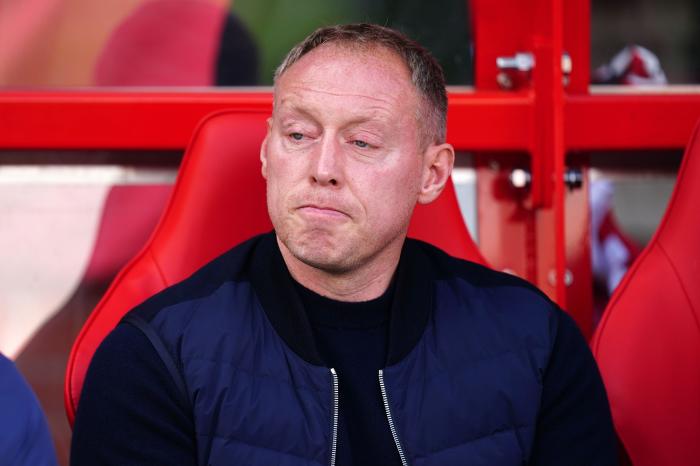As we wave goodbye to the great human being Gareth Southgate, arguably the best England manager since Alf Ramsey, we must not forget England’s high expectations when considering his replacement.
Southgate deserves all the commendation and the subsequent knighthood for his amazing contribution to English football, but do England’s high expectations make the job of England manager as appealing as cancer?
Carry the Burden of England’s High Expectations
England fans don’t just crave international success, they demand it, and the next condemned soul to accept the role will need skin like leather and shoulders of oak to carry the burden of high expectations and media pressure.
For years now, England has been so close to glory that you can almost hear the ghostly presence of Jim Bowen, “Look what you could’ve won”, as the players walk past the trophy with their losers’ medals draped around their stooped, miserable countenance.
If England had never won the World Cup in 1966, would we be as demanding for success or would we be more relaxed to see the likes of France, Spain, Argentina, Brazil and Germany rack up stars on their shirts like war heroes?
Decision Making
Despite Southgate’s undeniable success in the role, he is not without his critics. The blow of going behind on occasions and the anger-ridden response following the Slovakia game leaves many questioning his decision-making.
And it isn’t just the final against Spain where we question Southgate’s decision-making and hesitance, his credibility is also questioned in the previous final against Italy, the 2018 World Cup quarter-final against France, and the crushing World Cup semi-final defeat against Croatia in Qatar.
A high pool of talent has been available to Southgate over the last eight years and nothing has emphasized the availability of elite players more than the over-enthusiastic media that glorifies the premier league and openly publicizes the England squad as being the best in the world.
Again, Spanish sides have won the international and the domestic European trophies, with only Jude Bellingham being part of both from the England Squad.
The Impossible Task
As we have touched on previously, winning at this level isn’t easy, it’s a near-impossible task and each player in every position has to be top quality and 100% fit. England took one left-back to the tournament who hadn’t played a competitive game for five months and Harry Kane.
Harry looked so burnt out this tournament, fans constructed a treasured urn for his ashes. In fact, Kane was missing for so many long periods of the tournament that the F.A. commissioned Indiana Jones to look for him.
Part of me feels that, because the bar was set so high nearly 60 years ago, we naturally assume that there should have been further natural success since 1966; an organic progression.
England’s High Expectations History
Regardless of what we think about England’s performances at this year’s Euros, Gareth Southgate has made history with this England side by reaching a final on foreign soil.
We can all argue that we were better than the Italy side that beat us on penalties in 2021 and we can suggest that Spain was beatable. Unfortunately for England, opportunities weren’t taken against an inferior Italy side and Spain were, without a doubt, the best team in this tournament.
We assume that these players are winning and performing at club level but are there deeper factors to consider when playing for your country? , with regards to international cohesion and experience in tournament football, are England years behind Spain, France and Germany?
There’s Always an Achilles Heel.
When you look back at the successful international teams, even if there is a weak player in the squad, it appears to be counteracted by sheer determination and a tactical set-up that sees teams play to every player’s strengths.
Argentina had Montiel who scored a winning penalty for Argentina in a World Cup final, and Spain had Cucurella who looked average when he came to the City Ground, but they are somehow winners.
Whenever England go into tournaments, there is always an Achilles heel. It’s either Rooney’s metatarsal, Lampard’s lumbago, Beckham’s bad back, Harry Kane’s fatigue or Kyle Walker’s mistresses.
There is always something which isn’t really an issue for other international teams and, if it is, they forget about it when they get out on the football arena.
Denmark and Greece have even won the Euros and Denmark only qualified because Yugoslavia were embroiled in war. When Italy won the World Cup in 1982, England, Argentina and Brazil probably had superior players but somehow, Italy dragged themselves out of their group after drawing with a poor Poland side and won it convincingly with a clinical Paulo Rossi who wasn’t even a first-choice striker.
Also, does the fact that England looked as if they were going to dominate world football after 1966 make it harder to swallow when we breathe in defeat against countries with smaller populations than ourselves?
I feel that whoever takes on the impossible job of England’s manager, the prerequisite in the job description will be ‘Win the World Cup’.
The archaic way that England teams have played football in the past means that successful English managers just don’t exist. In real terms, English managers are only just adapting to the modern game.
Spanish Academies
Spanish academies such as Barcelona’s La Masia, the most expensive in Europe with a running cost of £5million per annum, have now surpassed the production line of the Ajax academy with a whole host of top-class players such as Messi, Fabregas, Dani Alves, Iniesta and Xavi all coming through the system.
This type of facility is only just becoming established in England, and the majority of managers involved with the biggest English academies are foreign. England is just beginning to churn out English players with continental footballing minds.
Let’s not forget, it has largely been foreign players who have lit up the Premier League and the managers of World Cup and Euro-winning teams have always been homegrown.
Although foreign managers like Pep Guardiola, Ancelotti, José Mourinho, and Jurgen Klopp have experienced an elite level of success with English clubs, there are still those with an opinion that the new England manager should be English.
Ultimately, the high expectations are there because England should have been able to win something with the squads they have produced over the years. And, with this in mind, the emphasis then shifts to the competency of the managers and whether or not they have been able to rival the best in the world.
Unfortunately, when considering English managers, we conclude that they just aren’t as successful as their foreign counterparts, and we must lament that whoever accepts the ill-fated role will end up as humiliated and as ridiculed as the rest.


